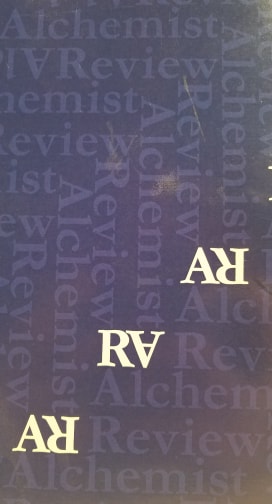Poem: “Post-Apocalyptic”
Poet: Stacia M. Fleegal
Magazine: deComp
http://www.decompmagazine.com/post-apocalyptic.htm
Blogger: R. Murphy
Stacia M. Fleegal’s “Post-Apocalyptic” is a short poem, but it provides more than enough story to keep the reader wondering. From the first line, it provides a sense of secrecy and urgency. It doesn’t explain what kind of apocalypse happened or how long it has been like this. The beginning line and a half thrusts the reader into the situation, just as the narrator and the rest of “us” were most likely forced to adjust after the apocalypse.
The way that the lines break in the poem also convey the sense of urgency. It gets across the idea that the narrator is continuing to talk, and that they aren’t pausing for anything. There isn’t a single line that ends with a period, and so there is no real pause for a specific image except for the fifth line and at the end. The fifth line has a pause to highlight the bleak sentiment “or wait to die”, reminding the narrator and the reader that they might not survive this apocalypse, and that they could die at any time. The phrase redefines the verb live, showing that the narrator isn’t necessarily happy that “we” still survive, that their death is inevitable and only slowed by their effort.
Even though the “we” and “they” are never clearly identified, there is still a sense of caution and wariness conveyed, with very divisive language. The sentence “They are hunting us” tells the audience that the “they” are smart enough to hunt, but possibly carnal enough to be brutal about it.
The lack of context also makes me think of the 1954 novel I Am Legend, in that we immediately side with the narrator because we are given no other point of view. As with the novel, perhaps we and the narrator have judged wrongly, and that perhaps “they” have a good reason for it, as the vampiric creatures did in I Am Legend.
Another word choice of interest was the fact that Fleegal only uses plural pronouns, “we” and “us”, and that there is no “I” or “my”. In these post-apocalyptic times, there must be unity, no matter the relationships of the people involved. The priority is on the survival and unity of the community, not the feelings and status of the individual.
The language used throughout is vivid, hard, and at times overwhelming. The building has its back against the woods, as a person might have their back to a wall for protection, as at least you can’t be ambushed from behind– except in this case, depending on “them”, it could be worse that the building’s back is to the woods. The hard language comes in line seven, with “candy bars, or paper scraps, or vodka” with hard consonants being repeated over and over, with the k sound in candy, scraps, and vodka a harsh sound for a harsh reality. The explanation of the things to remember almost give it an overwhelming feeling, because if you avoid one, you could forget another and be snagged or shot.
The piece was very effective in bringing its reader in, and with each passing sentence I felt as if I were drawn further and further into this world that Fleegal created. I could see the building falling apart next to the water, and I could see the almost hopeless maze of traps to keep “them” out that unintentionally hindered “us”. It created a wide, bleak world in a matter of sentences that left me wondering on the future, for both “us” and “them”.

